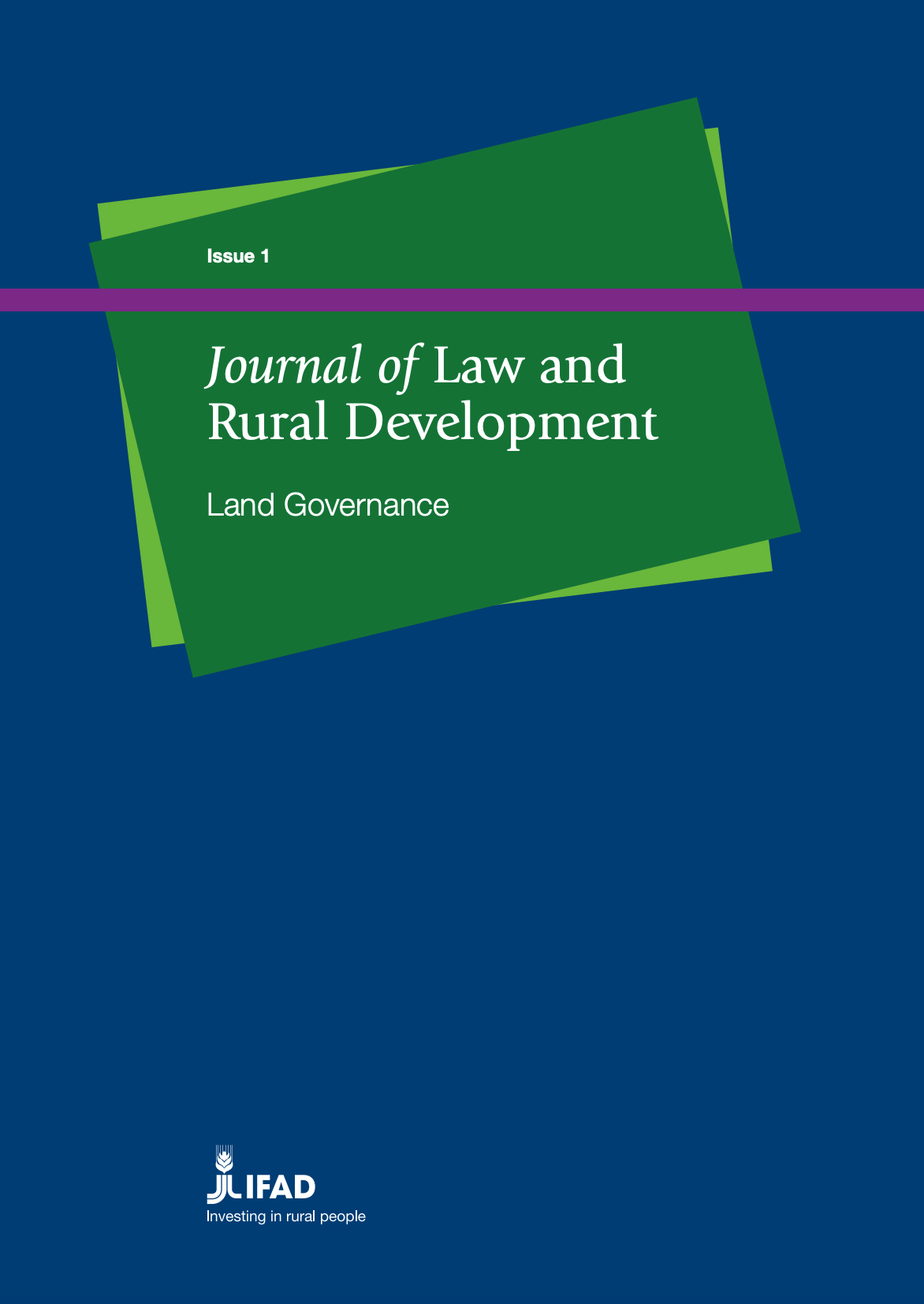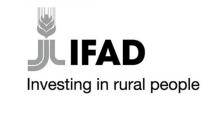Resource information
necessarily represent those of IFAD. The designations employed and the presentation
of material in this publication do not imply the expression of any opinion whatsoever on
the part of IFAD concerning the legal status of any country, territory, city or area or of its
authorities, or concerning the delimitation of its frontiers or boundaries. The designations
“developed” and “developing” countries are intended for statistical convenience and do
not necessarily express a judgement about the stage reached by a particular country or
area in the development process.
This is the first issue of the Journal of Law and Rural Development, published by IFAD. IFAD’s mandate to address rural poverty and promote rural development is unique among international organizations. For many years IFAD limited its activities to financing projects and programmes implemented by its Member States, but over the last decade it has begun to transform itself into a knowledge centre and a key participant in the international policy dialogue around rural development issues. The launch of this journal is another step forward in this transformation.
The idea that legal reform can address the causes of rural poverty has recently been subject to criticism and reappraisal, but IFAD’s experience has been that changes in the law genuinely can unlock the potential for development, particularly where smallholders and poor rural people are concerned. IFAD believes that the social, political and legal infrastructure is just as important as the physical variety, and that changing ideas and beliefs is just as important as building roads or irrigation canals in helping to improve poor people’s lives.
But the purpose of this journal is not to promote IFAD’s ideas or its approach to development. The journal is intended to be a forum where the link between law and rural development can be explored and ideas can be discussed without any political, ideological or bureaucratic limitations. International organizations often tend to avoid any type of controversy or criticism, but this attitude is not the best way to encourage the new ideas and viewpoints that these organizations need in order to evolve and work more effectively. This journal will, we hope, be a place where criticism and commendation are equally acceptable, and where ideas can be exchanged without the need for too many disclaimers.
The journal’s first issue focuses on legal and development issues related to land. This is the obvious place to start, and it is a subject that we will undoubtedly return to often in the future. There are articles highlighting the lessons learned from some of IFAD’s projects and insights from the International Land Coalition, which IFAD hosts. We are pleased to have contributions from our colleagues at IFAD’s Rome-based sister agency, the Food and Agriculture Organization, and a piece describing the activities of the European Bank for Reconstruction and Development, another international financial institution with which we have been exploring areas of cooperation. There are also articles by independent scholars and experts, and we hope in the future to benefit even more from these kinds of external insights.
At the end of the issue there are translations of the abstracts of the articles into Arabic, French and Spanish. We encourage translation of the articles into these and other languages, and we will be happy to authorize reproduction of articles on request. Future issues of the journal, which will be published yearly in February, will also include book reviews and the proceedings of symposia and conferences sponsored by IFAD. The topic of the 2018 issue of the journal will be “Renewable Energy and Rural Development: Legal Considerations,” and we invite potential contributors to contact us at legaljournal@ifad.org
The former General Counsel of IFAD, Gerard Sanders, originated the idea of this journal and guided it through the early stages of development. Special thanks must also go to the outgoing President of IFAD, Kanayo F. Nwanze, who has championed IFAD’s transformation into an institution dedicated to learning and teaching. Without his steady support the launch of the Journal of Law and Rural Development would not have been possible.
Voluntary Guidelines on the Responsible Governance of Tenure


